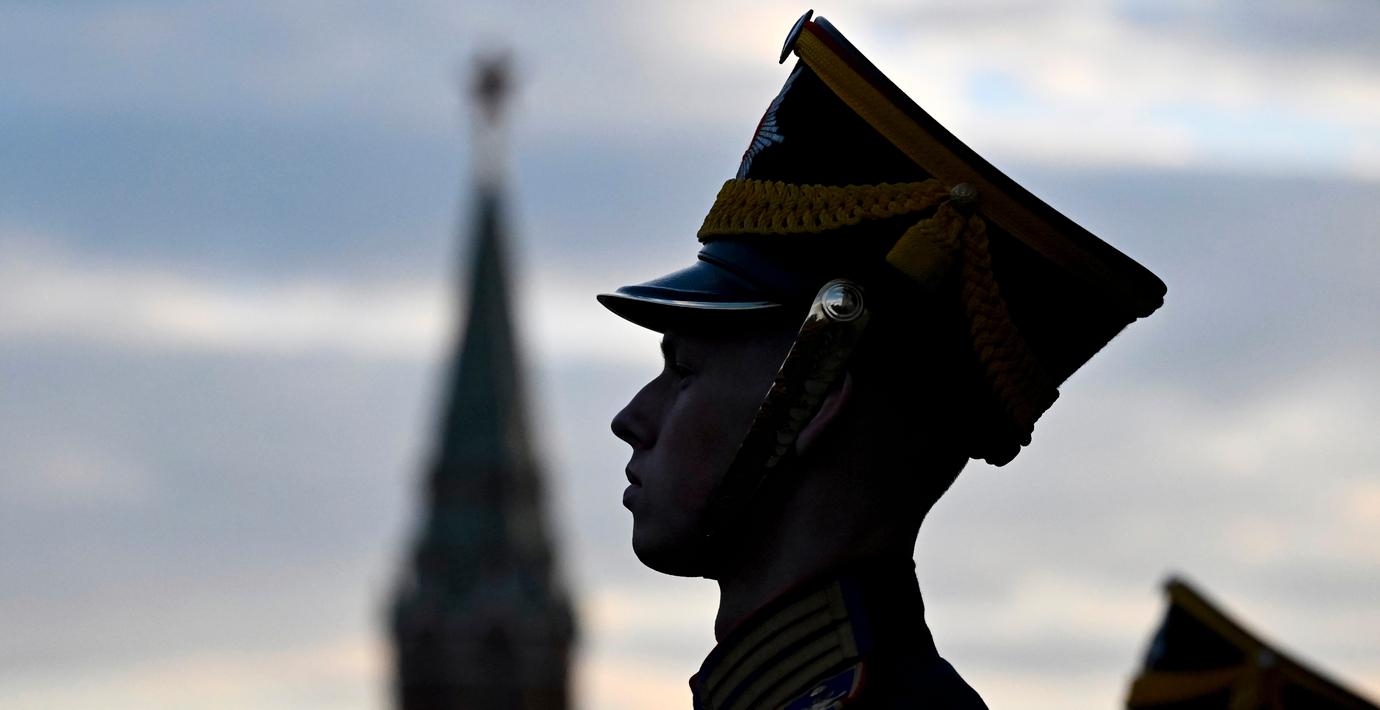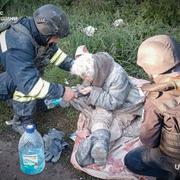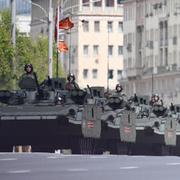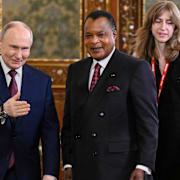
Ryssland hävdar att vapenvilan har inletts
Statliga ryska medier uppger strax innan midnatt att den tre dagar långa vapenvilan som sträcker sig över det ryska firandet av segerdagen har inletts, rapporterar AFP.
”Vapenvilan för 80-årsdagen av den stora segern har inletts”, skriver statliga nyhetsbyrån RIA.
Att det faktiskt blir något eldupphör ser inte särskilt troligt ut. Putin utlyste den ensidigt och Ukraina har svarat att de i stället vill ha en 30 dagar lång vapenvila. President Volodymyr Zelenskyj antydde även under onsdagen att man inte kommer hörsamma den.
Senast Putin utlyste en vapenvila var under den ortodoxa påsken, och då fortsatte Rysslands attacker.
Segerdagen
Wikipedia (en)
Victory in Europe Day is the day celebrating the formal acceptance by the Allies of World War II of Germany's unconditional surrender of its armed forces on Tuesday, 8 May 1945; it marked the official surrender of all German military operations.
Russia and some former Soviet countries celebrate on 9 May, as Germany's unconditional surrender entered into force at 23:01 on 8 May Central European Summer Time; this corresponded with 00:01 on 9 May in Moscow Time.
Several countries observe public holidays on the day each year, also called Victory Over Fascism Day, Liberation Day, or Victory Day. In the UK, it is often abbreviated to VE Day, a term which existed as early as September 1944, in anticipation of victory.
bakgrund
Segerdagsparaden i Moskva
Wikipedia (en)
The Moscow Victory Day Parade (Russian: Парад Победы в Москве, romanized: Parad Pobedy v Moskve) is an annual military parade of the Russian Armed Forces on Moscow's Red Square on May 9 during the Victory Day celebrations. The most important parade of those being held on May 9 is the one held on Moscow's Red Square, with the President of Russia as the guest of honor and keynote speaker in virtue of his constitutional mandate as Supreme Commander of the Russian Armed Forces. The parade is a commemoration of the capitulation of Nazi Germany to the Red Army, marking the end of the Eastern Front of World War II, known in Russia as the Great Patriotic War.
According to anthropologist Sergey Ushakin, modern victory parades are intended to demonstrate the direct and immediate connection of the present with the past and to materialize the connection between generations. Long time parade commander Oleg Salyukov described them as a "celebration for people, not show of militarism" referring to accusations of the parade being used as show of Russian military might.
Omni är politiskt obundna och oberoende. Vi strävar efter att ge fler perspektiv på nyheterna. Har du frågor eller synpunkter kring vår rapportering? Kontakta redaktionen


